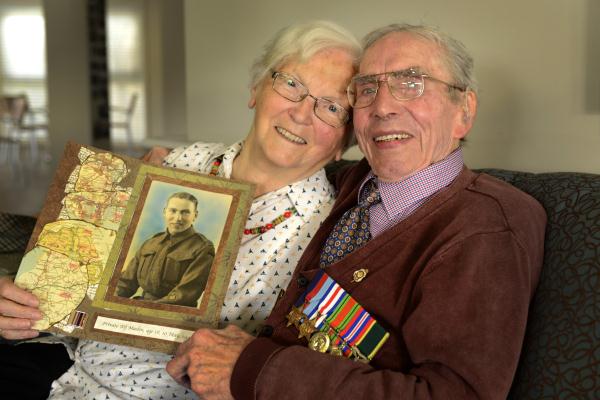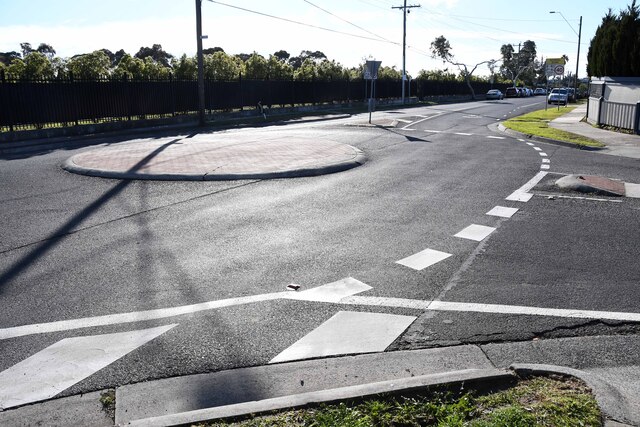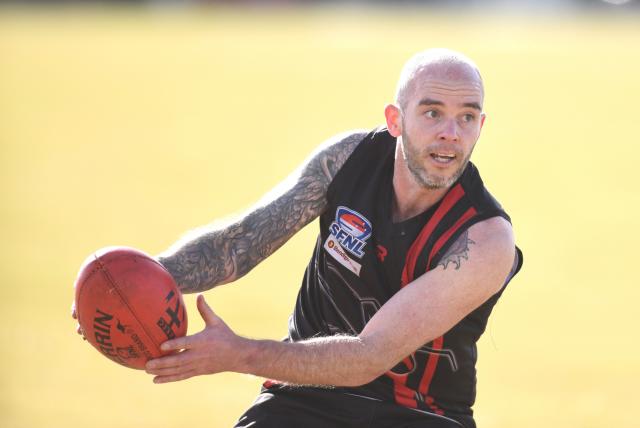By ANNE MASLIN*
NOBLE PARK pensioner Alf Maslin played a crucial part in history when he left an American troop ship and waded onto French sand as part of the D-Day landings in June 1944.
The 70th anniversary of D-Day was marked earlier this month by poignant ceremonies across Britain and along the Normandy coast.
For Alf the anniversary was a chance to quietly reflect on the remarkable invasion which turned the course of history.
Now 91 and living in a residential care home in Noble Park, Alf vividly remembers the events of 1944 and the battles that followed until the Nazi surrender in 1945.
Alf was a soldier in the British Army and on 5 September 1943 he was transferred to the Royal Electrical and Mechanical Engineers workshop in the 214th Brigade of the 43rd (Wessex) Infantry Division where he repaired and maintained trucks and other vehicles.
In early 1944 he was sent to Dover for small arms and infantry training in preparation for D-Day.
On 6 June the invasion of Normandy began and World War II took a critical turn as Britain and the Allies went on the offensive.
British troops were massed and taken down to ports on the south coast.
A great armada of troop carriers left England and sailed across the English Channel.
Gold Beach was the Allied code name for the centre of the invasion landing area in Normandy.
It lay between Omaha Beach where US forces landed and Juno Beach where the Canadians landed.
The landing area was eight kilometres wide and the primary objective of the force’s landing at Gold Beach was to seize the town of Bayeux, the Caen-Bayeux road, and the port of Arromanches.
On 6 June Alf was still in England waiting to be sent over to France.
His REME division was in the rearguard.
Caen, the division’s major objective, was still in German hands at the end of D-Day. Then his commanding officer told them “Well boys, the balloon goes up tomorrow!”
The following day it was Alf’s turn. He left for France from Gosport, boarding an American troop ship carrying armoured vehicles and supplies.
He landed at approximately 6pm in the Seine Bay near Caen and Bayeux.
To get ashore, they used a landing craft tank. Whole workshops with lathes and equipment had to be landed, as well using floating roadways.
Alf landed in three feet of water, which deepened as the tide came in. The amphibious tanks also had to be unloaded.
The troops waded ashore and soon found themselves three to four miles behind the front line where they could hear the infantry fighting.
Alf and his mates were directed inland to an orchard.
Their engines had to be covered with “dum-dum”, a sticky goop like Blu-Tack which was designed to disguise them.
Alf slept under a troop transporter and tucked into tinned sausages, tinned bacon, white bread and evaporated milk.
He didn’t mind the rations and a tin of 50 cigarettes a week, which were used for bargaining with the local people.
The sound of buzz bombs overhead were daunting but he just “hoped for the best” and remembers a great sense of comradeship.
Alf’s job was servicing the vehicles, mainly engine changes, under camouflage.
On 4 July the 43rd (Wessex) Division moved to Caen, the ancient birthplace of William the Conqueror and a vital road and rail junction that the Allies needed to capture before they could advance south through the Falaise Plain.
The 43rd (Wessex) Division was a finely-trained unit waiting to face its first battle.
Until the moment that the German armies pulled back across the Rhine early in March, the 43rd (Wessex) Division was called upon to take a leading part in every one of the major operations launched by the British Second Army and esablished a remarkable reputation for its hard-hitting determination.
The battle record of the 43rd Wessex includes the epic assault of Mont Pincon, the Anglo-American offensive at Geilenkirchen, the first British attack inside Germany, and the liberation of the Holland.
Alf played his part in these operations, finally moving into Holland.
This was a life-changing moment because in Hengelo Alf met Jenny, his wife of 70 years.
The war meant terrible things for many, many people, but sometimes there was a happy ending.
*Anne Maslin is Alf’s daughter-in-law







